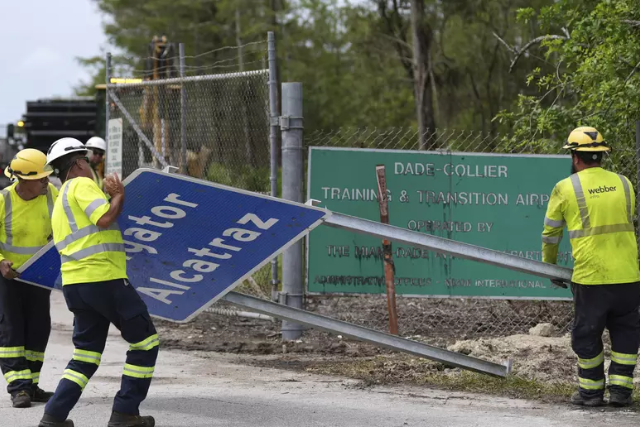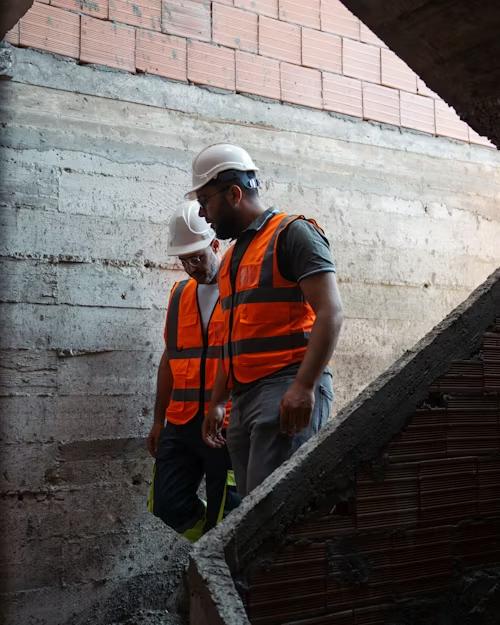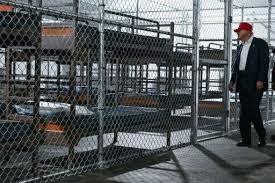
A federal judge has ordered a temporary halt to new construction at Florida’s controversial “Alligator Alcatraz” migrant detention facility, located deep in the Everglades, amid growing environmental and human rights concerns.
U.S. District Judge Kathleen Williams, appointed by President Obama, issued the order Thursday during a hearing in the Southern District of Florida. While the facility may continue current operations, no further building work is allowed for the next two weeks. Judge Williams said she will issue a written opinion detailing her legal reasoning.

The pause gives the court time to consider broader legal and ecological challenges raised by environmental groups and the Miccosukee Tribe. The judge’s move is widely seen as a sign of skepticism toward the state’s decision to construct the detention center in such a sensitive location.
Florida officials pursued the project to increase migrant detention capacity for U.S. Homeland Security. Republican Gov. Ron DeSantis personally toured the site with former President Donald Trump before its opening last month.
The facility was built on the grounds of the Dade-Collier Training and Transition Airport, in the heart of the Everglades. Critics say the site’s construction paved over fragile wetlands and introduced constant high-intensity lighting that disrupts nocturnal wildlife.
Environmental groups argue that an environmental impact study should have been conducted before federal authorities began using the site.
“We’re pleased that the judge saw the urgent need to put a pause on additional construction, and we look forward to advancing our ultimate goal of protecting the unique and imperiled Everglades ecosystem from further damage caused by this mass detention facility,” said Eve Samples, executive director at Friends of the Everglades.
The legal challenge was brought by a coalition of environmentalists and the Miccosukee Tribe. Their claims center on:
ICE has been sending migrants to the facility but maintains it is state-run. Florida argued in court that it is not bound by federal environmental regulations since the state controls construction and operations.

Also dubbed “Gator Gitmo,” the detention center has become a flashpoint in debates over Trump-era immigration policies.
Immigrant rights groups have condemned the facility’s creation, with some labeling it “racist” and emblematic of systemic inequities in U.S. immigration enforcement.
The ruling comes amid escalating political tension over immigration policy in Florida.
The two-week injunction is only a temporary reprieve. Judge Williams’ written opinion will determine whether the pause becomes a longer-term block. If she rules against the state, Florida could be forced to halt operations or relocate detainees — a move that could disrupt federal immigration enforcement plans.
The case also raises the possibility of federal environmental law applying to state-led detention projects, setting a precedent for future disputes.
Originally reported by Stephen Dinan in Washington Times.